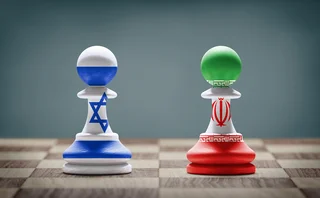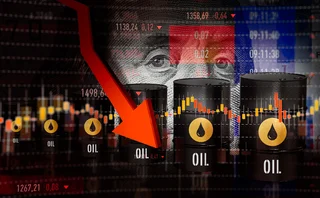ICE launches Middle East sour crude contract
The ICE Middle East Sour Crude futures contract will begin trading electronically on ICE Futures, ICE’s energy futures subsidiary, on May 21, pending UK regulatory approval.
The ICE contract is cash-settled against the Platts Dubai physical cash price assessment, and will be in direct competition with the Dubai Mercantile Exchange’s (DME) physically-delivered contract, now due to be launched on June 1.
While the DME has not responded directly to the launch of the ICE Futures contract, it has argued in the past that the physically-delivered nature of its contract will allow it to succeed where previous cash-settled contracts have failed.
But Paul Wightman, head of oil futures for ICE Futures, claims that the decision to take the cash-settled route was based on customers’ preferences, and points out that the Platts price on which the contract is settled is itself physically-derived.
Both exchanges are hoping to succeed where several previous efforts have failed. ICE’s forerunner, the International Petroleum Exchange, launched an unsuccessful sour crude contract in the early 1990s. But according to Wightman, conditions are now more suitable for the introduction of a sour crude contract.
“There is now a very successful electronic trading environment,” he explains, “we have a global marketplace, whereas before markets were more regional.”
He rejects that notion that a successful sour crude contract might detract from liquidity in Brent trading, describing the new contract as “an extra tool”.
The success of ICE Futures’ WTI contract, launched last February, has also put the exchange in a better position to launch a sour crude contract, says Wightman. Exchange users will now be able to trade Brent, WTI and Middle East sour crude together on the same platform. The spreads between Brent, WTI and the Middle East sour crude futures contract will also be available immediately.
The Middle East is one of the world’s largest crude oil production regions with several key OPEC members based in the region. Approximately 70% of total Middle East crude exports are exported to Far Eastern buyers. The Middle East has over 60% of the world’s proven oil reserves.
The ICE Middle East Sour Crude futures contract will trade continuously for 22 hours a day – from 01:00 to 23:00 local London time (BST), or from 08:00 through 06:00 (following day) local Singapore time (GMT + 8 hours). Daily contract settlement will take place at 19:30 local London time with final settlement upon expiration at 09:30 local London time (BST) (16:30 local Singapore time, GMT + 8 hours).
More on Oil & refined products
Energy Risk reaction: Venezuela and oil sanctions
Energy Risk talks to Rob McLeod at Hartree Partners about the energy risk implications of the US’s control of Venezuelan oil
Energy Risk Europe Leaders’ Network: geopolitical risk
Energy Risk’s European Leaders’ Network had its first meeting in November to discuss the risks posed to energy firms by recent geopolitical developments
US shutdown leaves commodity traders without key data
Commodity traders are ‘flying blind’ without Commitment of Traders reports
Energy Risk at 30: Learning from the past
Energy Risk looks back at the seminal events and developments that have shaped today’s energy markets
Why Iran tensions failed to rattle markets
Despite initial fears, traders say risks were signposted and investors had deleveraged after April
Oil and products house of the year: Macquarie Group
Energy Risk Awards: Bank pioneers innovative deals in illiquid markets, taking on esoteric risk
Podcast: should negative oil prices be allowed?
Did negative oil prices signify the market was operating effectively, or that something was wrong?
Podcast: the future of retail investment in oil
Will negative prices and big losses curb retail investors’ appetite for oil futures over the longer term?







